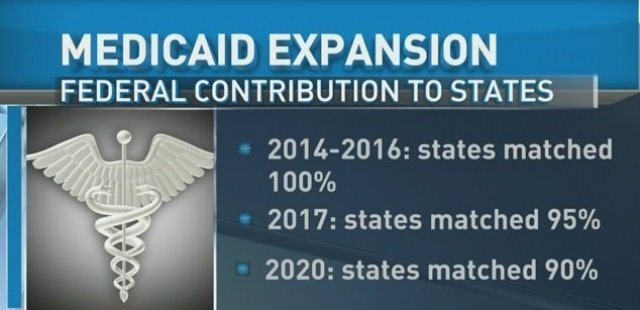Donald Trump vowed as a candidate to kill Obamacare in short order. But more than two weeks into his presidency, some Republicans are starting to ask: What happened to repealing the law quickly?
The sentiment is beginning to simmer within the influential conservative wing of the Republican Party and hints at what could be the opening of an intra-party rift as the GOP’s mission to overhaul the country’s health care system appears to be losing steam.
In one faction are lawmakers increasingly wary of the pitfalls of a quick and sweeping repeal of the Affordable Care Act. In recent days, top congressional Republicans who are most intimately involved in health care policy have urged moderation: Fearing the consequences of a rapid repeal, they have begun to speak of “repairing” the law and even preserving aspects of it that are working.
That shift in tone has irked other Republicans who are eager to take a swift vote to roll back as much of Obamacare as possible. Their fear: their conservative constituents back home won’t settle for anything else.
“For goodness sake, we should be able to put something on President Trump’s desk that’s at least as good as what we put on President Obama’s desk. Not something watered down,” Rep. Jim Jordan, R-Ohio, told CNN in an interview. “Let’s repeal it. Let’s do what the voters sent us here to do.”
Asked about the political ramifications of repealing less than what the House has voted for in the past, Jordan responded forcefully. “That’d just be the flat out wrong thing to do. No. Just flat out wrong,” he said.
Even Trump now seems to lower expectations. In an interview with Fox News’ Bill O’Reilly that aired before the Super Bowl Sunday, Trump referred to the process of overhauling the health care system as “very complicated” and wouldn’t commit to a firm timeline on when an Obamacare alternative would be rolled out.
“I would like to say by the end of the year at least the rudiments, but we should have something within the year and the following year,” Trump said.
For the most conservative members of the House, that timeline might be unacceptable.
Jordan, a member of the conservative House Freedom Caucus, along with the group’s chairman, Rep. Mark Meadows, released a statement last week calling on House leadership to bring for a vote the Obamacare repeal bill that the House passed during the last Congress. (That measure was vetoed by President Barack Obama.)
The 2015 bill would have repealed the mandates that individuals have health coverage and that companies with 50 or more employees provide employees affordable insurance. It also would have stripped away Obamacare’s federal subsidies by 2018, eliminated funding for Medicaid expansion and canceled a multitude of taxes. It gave lawmakers two years to come up with a replacement plan.
House Speaker Paul Ryan and other top Republicans are currently crafting a similar budget reconciliation bill that would unravel big chunks of the law. But that process has become complicated by pressure to include Obamacare replacement measures in that legislation.
Ryan said at a news conference last week that he now hopes to move Obamacare legislation by the end of March.
Meadows told CNN that the party needs to move much faster.
“I don’t know that there’s any new revelations that are going to come up by waiting 60 to 90 more days,” Meadows said. “We’re making the whole idea of repeal and replacement far more complex and laborious than it needs to be and I think it’s time that we just make some decisions and move forward with (the repeal bill).”
On considering anything less than what was voted on in 2015, Meadows quipped: “You don’t get any credit with any of your constituents if you do that.”
It’s not clear how widespread the calls to vote on the 2015 Obamacare repeal bill could become.
But when members of the House Freedom Caucus gather for their weekly dinner in Washington early this week, they plan to discuss the topic and try to garner broader support, according to a source.
Meadows and Jordan said they support voting on a replacement bill at the same time as the repeal legislation, and are exploring potential legislation that they could rally around.
Last week, members of the Freedom Caucus met with Sen. Rand Paul to discuss the Kentucky Republican’s Obamacare legislation and a potential cross-chamber partnership. Paul has been adamant that an Obamacare alternative must be ready before the GOP votes to repeal the law — a priority echoed by many fellow Republicans.
Reassuring the public that the GOP won’t allow millions to suddenly lose coverage will become an increasingly urgent task, as Republican lawmakers start to receive blowback from constituents for dismantling the Affordable Care Act at town halls across the country.
Doug Heye, who served as top aide to former House Majority Leader Eric Cantor, scoffed at the complaints coming from some Republicans that the party isn’t voting to repeal Obamacare quickly enough.
Heye, a CNN political commentator, witnessed first-hand the party’s months-long effort in 2014 to craft an Obamacare replacement bill — an exercise that didn’t go anywhere.
“I can tell you chapter and verse about 2014 and all the meetings that I went to on replacement where we never produced draft legislation,” Heye said. “We could do the repeal vote — that was easy. Then we tried to craft the replacement legislation, which not having the Senate and not having the White House — it was still very much of a political act. And now it’s more than that.”



